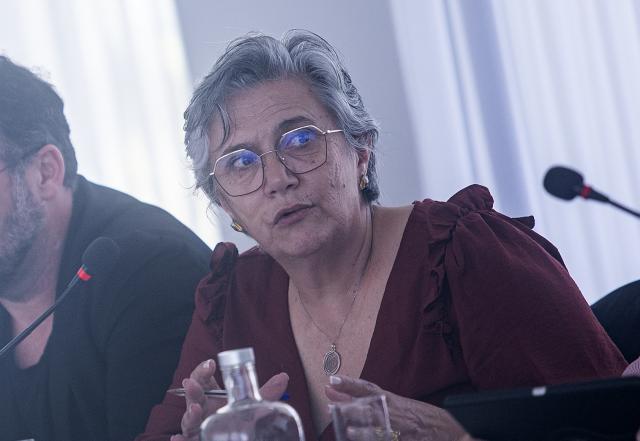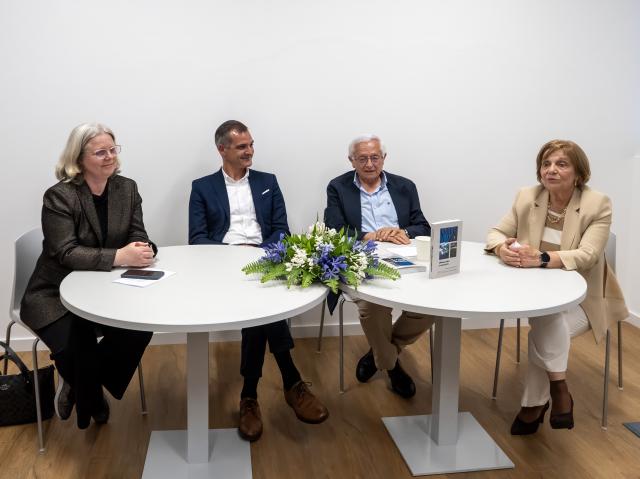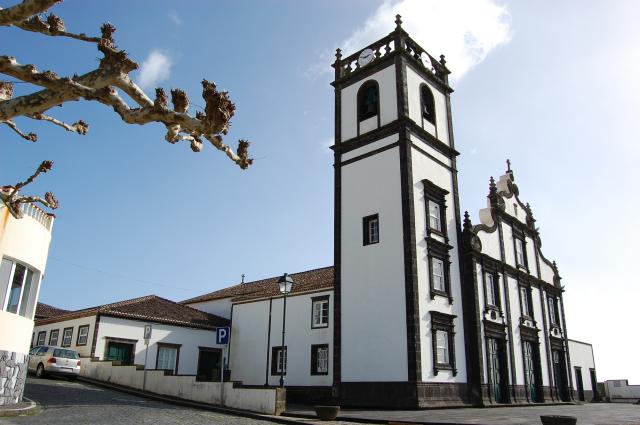Autor: Rui Jorge Cabral
Is the tourist year going according to the expectations of Azorean hoteliers, both in terms of overnight stays and tourist markets, as well as in terms of revenue?
We have seen a growth trend in the post-pandemic period, especially in terms of revenue. It has been a faster growth than anticipated three years ago, but it's been very positive. There has been an increase in the average price, which is very important, especially given the general increase in costs during this period of inflation.
Growth in overnight stays has been moderate. We are consolidating various source markets, such as the domestic market, and various European markets, such as Spain and France, while growing in the North American and Italian markets, for example.
We have managed to maintain direct accessibility during the high season and the way forward is to expand this accessibility throughout the year and reduce seasonality.
It's also important not to forget how important this sector is for economy and how cross-cutting it is. Tourism's growth isn't just felt in accommodation, car rental or restaurants, it's spread across a wide range of suppliers, from agri-food, fisheries, industry, construction and many other services. It has been a very important upward trajectory for the region.
Is the possibility of Ryanair ceasing to operate all year round or reducing operations in the Azores worrying for the tourism sector?
This issue is very worrying. Everyone connected to the sector is apprehensive. Switching to a seasonal operation is a step backwards. The impact is serious and will not only be felt on the islands of São Miguel and Terceira, but will have repercussions on all the islands, as this operation represents an important market share during the winter period.
We are talking about a drastic reduction in the number of seats offered during the low season, when there is already a reduction in accessibility, especially to foreign source markets. There will also be a significant reduction in the number of seats offered to the domestic market, which is still our largest market.
The impact of this reduction will be felt in various sectors other than tourism and will also have negative consequences for the stability of employment contracts associated with this area. We will depend on Azores Airlines and TAP to reinforce their flights, in the hope that they will be able to increase the daily frequencies on the routes from Lisbon to Ponta Delgada and Terceira.
How do you react, as the AHP representative in the Azores, to the privatization process of Azores Airlines? Do the two known candidates guarantee the company’s future and its position in Azorean tourism?
As a taxpayer, and taking into account the current shareholders and the company's performance, I think it is essential that the privatization process of Azores Airlines presupposes greater efficiency in the management of resources. It is not sustainable, in the long term, to maintain the accumulation of negative results that we have seen. On the other hand, Azores Airlines is an important player in the market, due to its importance in guaranteeing access to the destination. The challenge is to increase revenues and reduce costs in a sustained way over time, while contributing to the region’s economic and tourist development, guaranteeing the greatest number of accesses and connections to the inter- island route operated by SATA Air Açores.
The two consortia bring together partners linked to the airline operation. This will require a strong management team focused on results and strategic coordination for the region’s benefit. Azores Airlines is an important mobility tool for the region, regardless of its shareholders, and we must not lose sight of the importance of defining a coordinated strategy between the company and the Azores destination.
The Azores are in the process of revising their Tourism Management Plan (POTRAA). How should the growth of hotel capacity in the region be planned and what measures would the AHP like to see included in the new plan?
We believe that there is room for growth, demand has outstripped supply and the growth in supply in traditional hotels has been moderate. We are a long way from the massification of the destination. The priority must be to reduce seasonality in order to guarantee the profitability of investments. It is also important to harmonize supply across the territory, bearing in mind that there are naturally islands with greater capacity for growth.
The Azores have positioned themselves as a sustainable and safe destination and now we would go further to consider it exclusive with unique and authentic experiences.
To do this, we need infrastructure, and not just in terms of accommodation.
Public investment is needed in this sector, which contributes so strongly to the development of the region and its domestic product. Not only in promotion, which is essential, but also in support infrastructures. POTRAA should also provide for a series of public investment initiatives in order to boost the harmonized growth of the sector.
The recovery of tourism to new record levels in the Azores in the aftermath of the pandemic has once again raised the issue of overload. The access to Lagoa do Fogo has already been regulated this year, with the creation of a shuttle service for tourists. Does the AHP agree with this measure? What other measures does the AHP advocate for in order to avoid tourist overload in some places?
Along with other associations, the AHP has defended the need to invest in support infrastructures in visitor areas. When the tourist tax was discussed, we stressed the need to charge for services and not impose ad hoc taxes.
Parking lots, toilets and visitor support centers need to be provided.
It's still too early to assess the shuttle's performance, given that it has only just started operating. The entire Vista do Rei visitor area could be enhanced by creating a Visitor Center on the premises of the former Monte Palace, for example. This has already been suggested by the Ponta Delgada Chamber of Commerce and Industry (CCIPD), which hopes to revitalize an area that is often visited without safe conditions.
Access to the Canário lagoon could also be improved, with parking spaces and support infrastructures. Communication channels and the promotion of less popular points of interest on all the islands should also be improved.
The lack of workforce has been one of the problems faced by the hotel industry in the Azores. Low salaries have often been cited as a reason for it. How does the AHP react to this criticism?
The revision of salary scales has been above the inflation rate. Wage increases have been constant in recent years as a result of the legal requirement to increase the minimum wage. Wage taxation in Portugal should be questioned, instead of imposing the basic increase which only exacerbates inflation and does not translate into a real increase in income.
Wage increases have also occurred, naturally with the market working and a shortage of skilled labor. It is not true that low wages are the cause of labor shortage. This is a widespread problem, in various sectors and across countries in the developed world. If we add this current shortage to the aging of the population, we inevitably have to import labor.
In addition, the hotel industry is historically the group within the sector that pays the best and has been paying the most in recent years.
On the other hand, to the remuneration component, we have added social benefits, the revision of working hours to support families and other measures that increase trust in the working relationship.
It's also necessary to revise transportation policies for a sector that operates outside the 09:00-17:00 commute and also to revise public policies to support families, such as nurseries and a network of ATLs with extended opening hours.
The Azores have seen a strong growth in Local Accommodation (LA), which already accounts for a third of overnight stays in the region. Are hotels beginning to fear competition from LA or is there a market for both types of accommodation in the Azores?
The growth in the number of beds in Local Accommodation is more dynamic than in traditional hotels, since the whole licensing process is quicker and the investment is shared by a diverse range of investors. With the pandemic, many larger tourist development projects have been postponed until a more favorable economic climate, but they will be carried out in due course. We have some projects in view.
Competition exists in a free market and we see it as natural. Now, there are several examples of Local Accommodation developments that are very similar to hotels and should be subject to the same regulations, such as Guest Houses and Hostels.
On the other hand, the number of Local Accommodation beds is more prevalent on some islands, either because of their geographical characteristics or because of the adaptation to the demand for more isolated places associated with local architecture and smaller projects. There is room for everyone and everyone can grow.





